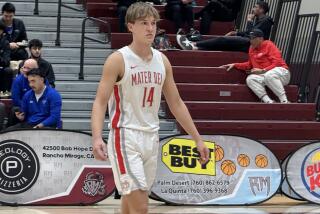Josh Barnett looks to reconquer UFC heavyweight division
On March 22, 2002, a young 24-year-old upstart named Josh Barnett scored the crowning achievement of his career. With a second-round TKO over Randy Couture, Barnett won the UFC heavyweight title in the main event of UFC’s third ever Las Vegas event. At 13-1, it appeared that he would have a great many UFC main events in front of him. But that didn’t happen. Remarkably, on August 31, the prodigal son returns for his next UFC fight over 11 years later. It’s the longest-ever gap between UFC contests.
Barnett’s long UFC exodus began with controversy. First, Barnett announced he wanted to renegotiate his UFC contract. At the time, many fighters were unhappy with UFC pay and knew they had options with a thriving Japanese MMA scene. Fellow UFC champions Jens Pulver and Murilo Bustamante left UFC that year because of contract disputes. Then, the Nevada State Athletic Commission announced Barnett had failed a post-fight drug test for the steroid boldenone. Barnett was stripped of the UFC heavyweight title and departed for Japan, which would be his professional home for most of the next six years.
Within a matter of months, Barnett had gone from the highest of highs to the lowest of lows. Although he would rebound from the situation, it remains one of the most difficult points in his career.
“That was a really rough, contentious, difficult period,” Barnett said. “Plus I was a lot younger. It’s night and day at this point from where I used to be.”
While most of the MMA fighters going to Japan during that period went to the Pride or K-1 fighting organizations, Barnett initially went a different route. A pro wrestling fan since childhood, Barnett joined New Japan Pro Wrestling, Japan’s historically strongest pro wrestling outfit. Barnett did pro wrestling matches against the promotion’s biggest stars and also took occasional real fights against mid-level opposition.
Barnett enjoyed pro wrestling and continued to do pro wrestling matches for Antonio Inoki’s IGF promotion, but he had unfinished business at the top levels of MMA. Thus, in 2004 he signed with what was then the worldwide leader in heavyweight MMA, the Pride Fighting Championships.
Signing with Pride allowed Barnett to compete against some of the sport’s most well-known fighters, including Mirko “Cro Cop” Filipovic and Antonio Rodrigo Nogueira. He made it to the finals of Pride’s 2006 Open Weight Grand Prix and reestablished himself as one of the sport’s best heavyweights. But his career was once again thrown into turmoil when Pride lost its television deal and was forced to sell to the UFC.
After the UFC’s purchase of Pride, most top Pride fighters went to UFC. However, bitter feelings still remained between Barnett and UFC decision makers over Barnett’s acrimonious departure in 2002. There were still a number of viable alternatives to UFC at the time and thus Barnett became one of the most high profile Pride stars to go elsewhere. He went 9-1 post-Pride, competing for a variety of promotions including Affliction, Dream, Sengoku and Strikeforce.
While at first there were a number of options for Barnett, they dried up one by one. By the time UFC purchased Strikeforce and eventually dissolved the promotion, no organization Barnett had fought for was still running shows. The businessman in Barnett recognized it was time to finally return to the UFC and signed a contract to return to his former home. It was an outcome that Barnett had always suspected might come.
“I never doubted it,” Barnett says. “I knew at the end of the day, UFC would do the best for itself business-wise. And I will bring good business to the UFC. They’d come to understand that I’m not what they thought I was. Whatever their perception, it wasn’t close to true. As we had that opportunity to work together for Strikeforce, they found out quickly I’d give them what they want and then some.”
For his first fight back, there was a natural opponent. For years, fans had speculated on how a fight between Barnett and former UFC heavyweight champion Frank Mir would go. Mir was rising up through the UFC ranks right as Barnett left and they fought on parallel tracks for over a decade without ever having the opportunity to be matched up. It was a natural matchup and they will finally meet in the co-main event of UFC 164 on August 31.
As Barnett prepares for the fight with Mir, part of his motivation comes from all the fans who asked him about the fight over the years.
“Absolutely,” Barnett notes. “I knew fans wanted it, but at the same time I wanted it. I wanted to show them, ‘Oh, you really want this? You think it’s going to be a great fight? It’s going to be great for me, but you’re not going to get what you’re expecting.’ But nonetheless I plan to leave fans satisfied.”
The battle between Barnett and Mir has added intrigue because it has the distinct feel of the “outsider” against the “insider.” While both fighters are now under UFC contract, they’ve had very different relationships with the company over the years.
Mir was the UFC’s golden boy, a fighter who was already in the UFC for his third professional bout and has fought over 90% of his fights inside the UFC Octagon. He has represented the company in public appearances, coached on the “Ultimate Fighter” television show and commentated for the UFC’s parent company Zuffa under the WEC banner. Barnett, by contrast, was once one of the company’s most outspoken critics.
That history offers up an interesting question: What does UFC brass think of the Barnett-Mir fight? Might there be some in the UFC office rooting for Barnett to fall flat on his face? Barnett doesn’t think so, but can’t completely rule out the possibility.
“I don’t think they’re worried about that at all,” Barnett says. He then quickly adds, “But there could be people thinking that way, even still. It’s not the sort of thing I can control. I can just be me and fight my fights and be the best I can be. If I’m out there being successful, it doesn’t matter what they want.”
One thing that Barnett will have to forego for the time being is his side endeavors in pro wrestling. Barnett has always viewed himself as a representative of catch wrestling, a hybrid of amateur wrestling and submissions that has long ties to Japanese pro wrestling. As such, he has continued to take pro wrestling matches from time to time in Japan while also doing MMA. Barnett won’t be doing that again any time soon, but hopes to one day do it again.
“At this time, I’ll be busy enough,” Barnett observes. “I wouldn’t mind doing one big show like New Year’s Eve or January 4, which is big in Japan. Maybe once a year, see if they’d be amenable. It would be beneficial to both sides as I’d be on the minds of Japanese wrestling fans. That’s the MMA audience in Japan and UFC does work in that territory.”
January 4 is the biggest date of the year for the New Japan Pro Wrestling outfit, the organization Barnett started for in Japan. New Japan in the past couple years has had a business revival, a fact that hasn’t gone unnoticed by Barnett.
“I haven’t followed it very, very closely but as I’ve worked in the IGF over the years I’d keep my ear to the ground and detect trends and I think it’s fantastic,” Barnett says. “New Japan’s doing good houses and when everyone does well, the business does better altogether. I’ve always had interest in going back to New Japan.”
For now, Barnett’s focus is on his legacy. At 35, his prime years will only last so much longer. The next few years will probably play a key role in shaping how he is perceived historically. Casual UFC fans weren’t watching the promotion when Barnett won the UFC heavyweight title in 2002. Their view of Barnett will be heavily colored by how he does in his return. It adds a pressure that Mir does not face. Barnett, after traveling the world, faces a homecoming of paramount importance.
“I want to come back and recapture that gold belt again for sure,” Barnett says. “I won it back in 2002 and I want to show why I was champ then and why I’ll still be champ now.”
The tone of Barnett’s voice changes slightly. Ever the showman, he adds a few additional words.
“Also, my own personal motivation is I want to beat up everybody, everywhere, all the time. UFC has the deepest pool so I’ve got to go there and keep swinging until there’s nothing left standing to swing at.”
ALSO:
Cris Carter ripped for his ‘extreme selfishness’ by Qadry Ismail
Anderson Silva tumbles from the top spot in Times’ MMA rankings
Tim Tebow reportedly spending 99% of his time in Patriots camp at QB
More to Read
Go beyond the scoreboard
Get the latest on L.A.'s teams in the daily Sports Report newsletter.
You may occasionally receive promotional content from the Los Angeles Times.











